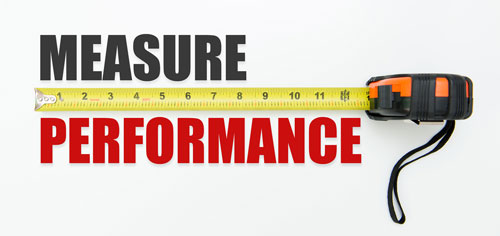I recently reviewed my strategy for my business, and naturally reviewed my performance measures as well. I love doing this, because it refreshes my focus and makes me feel that I have more power to achieve the goals I have set for the year. But this time around, things were a bit different.

One aspect of my business strategy is to increase the profile of flagship product (a performance measure methodology called PuMP) and my work internationally, so it becomes as well known and as well regarded as other performance measurement tools like the Balanced Scorecard.
One indicator of this is the number of invitations I receive to contribute to conferences, seminars, publications and so on. The logic is, that the only way I could be getting more and more invitations out of the blue, is that the profile of my work and of PuMP is increasing.
Now this isn’t going to just happen because I want it to. In addition to measuring the invitations to contribute, I am also measuring some of the strategies I have chosen to increase the profile of PuMP and my work. One strategy I am measuring, among others, is how many articles and papers and case studies I get published. The more I get published, the more people will be aware of, and see the value of, PuMP.
So far this sounds logical – just like any typical planning process. But things were a bit different this time around. The week after setting these measures in place, I got two invitations to contribute! It probably doesn’t sound like a big deal, but it felt exciting! It was almost like the act of measuring the number of invitations caused some invitations to come!
No, I am not suggesting that measures have magical powers (but I am not discounting it either) I am suggesting that when you start measuring something really appropriately, it focuses you:
– You start thinking more often and more deeply about the outcome you are measuring.
– You start noticing when the outcome starts happening.
– You become keener to collect the data for the measure that tracks the outcome.
– You prioritise your time on the actions that will move you closer to the outcome.
– You feel a sense of inner peace, because you know that what you are doing is what you should be doing.
Measures motivate and centre you. And my new measures certainly motivated and centred me! How did this happen?
– I put more effort into designing these measures than I had in the past.
– I imagined more vividly what result I wanted, and imagined more vividly how I wanted to spend my time to make that outcome happen.
– I imagined how I want my future to be and saw how the outcome was a part of that.
– I made sure that I could easily act toward making the outcome happen, enjoy doing those actions, and be confident that those actions were going to be effective.
So, even after 12 years of specialising in performance measurement, I got an entirely new appreciation of what the old cliché means: what gets measured, gets done!
About the Author
Stacey Barr is the Performance Measure Specialist, helping people to measure their business strategy, goals and objectives so they actually achieve them.




